3 Yoga Poses To Relieve Herniated Disc Pain
Effective yoga poses that can relieve pain and discomfort caused by this condition.
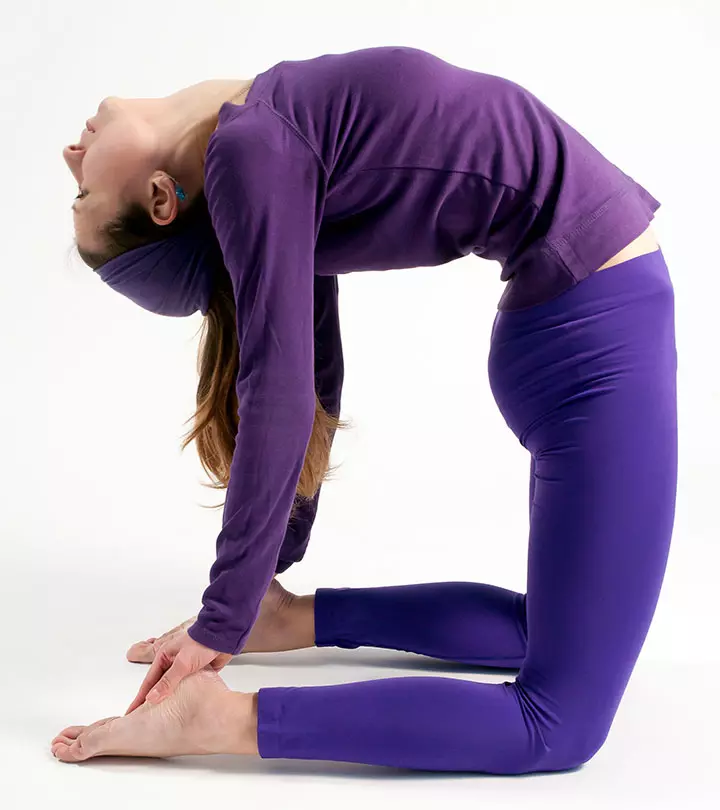
Image: Shutterstock
If you are suffering from back pain, it may probably be a herniated disc issue. But, don’t worry! There are certain yoga poses to relieve herniated disc pain and strengthen your back. Wondering what those asanas are and how to practice them?
In this article, we look at what a herniated disc is, three yoga poses that target your back and offer you relief, and the precautions you must consider while doing them. Scroll on!
In This Article
Herniated Disc – A Brief:
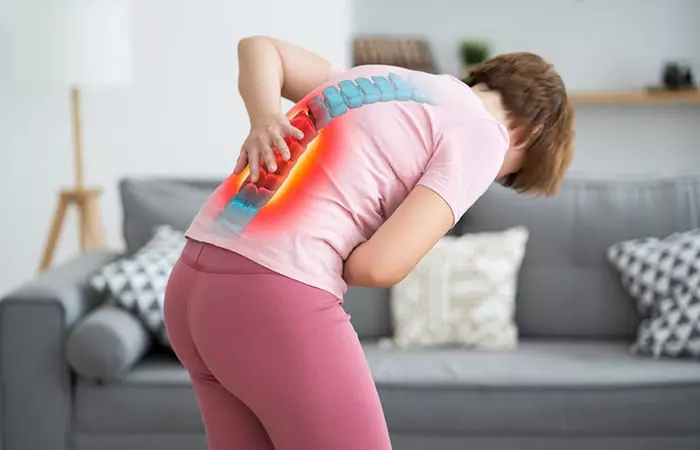
Herniated disc can be a very painful condition. It occurs when the discs placed between your vertebrae tear, and the interior of the disc protrudes. This pressurizes the adjacent nerves. In simpler terms, when the intervertebral discs become compressed and begin to bulge outward (herniation) or in certain cases rupture, it causes severe lower back pain (1).
When you are afflicted with this painful condition, both the legs and back are affected. The pain gets aggravated by movements and intensity can vary from one person to another. As it is, herniated disc may occur in any part of your spine, but the lumbar spine gets affected in most instances.
Key Takeaways
- Camel pose, locust pose, and cobra pose yoga provide relief from herniated discs.
- Begin with easy yoga postures and move on to advanced ones when the pain subsides.
- Avoid forward-bending yoga poses and deeper backbends.
- Avoid cross-legged sitting postures to elevate pressure on the nerve root.
Causes Of Herniated Disc:
The main causes are:
- Degeneration of the spine with age, wear and tear.
- Accident and resultant injury.
- Sports related injuries.
- Sedentary Lifestyle

Treatment Options For Herniated Disc:
There are several treatment options that doctors suggest for treating this condition. Non-surgical procedures are attempted first. Pain medications are given, and changes in diet are also advised. Exercises and yoga poses can bring significant relief from the pain, as it has been seen. Surgery is attempted as the last option. However, a study observed that over 10 years, between 3% and 15% of people had the problem again, and about 20% didn’t have a stable situation following the surgery (2).
May, a mom blogger, shared that she could sprain her back from even the slightest of movements. During one such episode, she visited an acupuncturist but could not find relief and was advised to consult a doctor for serious problems like a slipped disc. She shares, “I really did suffer a slipped disc on top of a very bad back sprain. The MRI showed water around my bones which meant it is currently inflamed. (i).” Since it showed signs of infection, she had to undergo an operation for it.
NSAIDsi Non-opioid painkiller drugs that are typically used by people to manage mild fever, reduce swelling, and prevent blood clots. are often applied to reduce pain as are ice packs. Experts today also recommend yoga to strengthen the back. This form of exercise not only helps strengthen the back, but is also a great way to stretch and keep your back flexible (3). Please note that the yoga asanas or exercises are very specific to the type of condition. For instance, applications of yoga asanas in the case of spondylolisthesis are completely different from spondylosisi A broad term for the deterioration of the spinal discs caused by aging, which may compress nerves and inflict pain and discomfort. . Please understand your specific condition and co-relate it to the asanas provided below.
Experimental treatment options such as endoscopic discectomyi One of the least invasive surgical techniques where the herniated disc fragment is accessed and treated with little to no bone removed. and electrothermal disc decompressioni A minimally invasive treatment that treats minor lumbar disc injuries by introducing a hot wire through a needle in the disc. may also be suggested to certain patients (4). But we strongly recommend that you take a second opinion before resorting to such treatment plans, that may at times do more harm than good.
Why Opt For Yoga To Get Relief From Herniated Disc?
Is yoga good for a herniated disc? Specific yoga poses, when performed under care and expert supervision, can bring victims of Herniated disc effective relief from the excruciating pain. Several yoga experts, like B.K.S. Iyengar, have recommended some special yoga poses for patients with this condition.These poses focus on spinal alignment and can help relieve pressure on the affected area, which can help reduce pain and discomfort.
Studies also suggest that those suffering from a herniated disc will benefit greatly from simple movements that emphasize the extension of the bones (5). Like you already know, yoga has a number of stretching exercises that are bound to give herniated disc patients immense relief from acute pain while at the same time help strengthen the bones in the back.
In a survey, 2434 participants were asked questions about their yoga practice through anonymous online surveys, email invites, and flyers. The majority of participants were women(87%), white(91%), and degree-educated(71%), with a mean age of 48.7 years. The survey showed that yoga positively impacted most participants’ well-being, but it also revealed higher anxiety. 47% of participants cited general wellness and fitness as their initial reason for taking up yoga, with stress management and spirituality becoming increasingly important for many practitioners. Furthermore, 16% of participants reported experiencing yoga’s benefits for various health conditions, particularly musculoskeletal and mental health issues.
Yoga For Herniated Disc
There are quite a few yoga poses for herniated disc patients that can bring relief from this medical condition. These are Seated Forward Bend, Locust Pose, Cobra Pose, Bridge and Camel Pose. A few inverted yoga poses like Forearm Stand and Shoulder Stand can also be good for the patients.
1. Camel Pose:
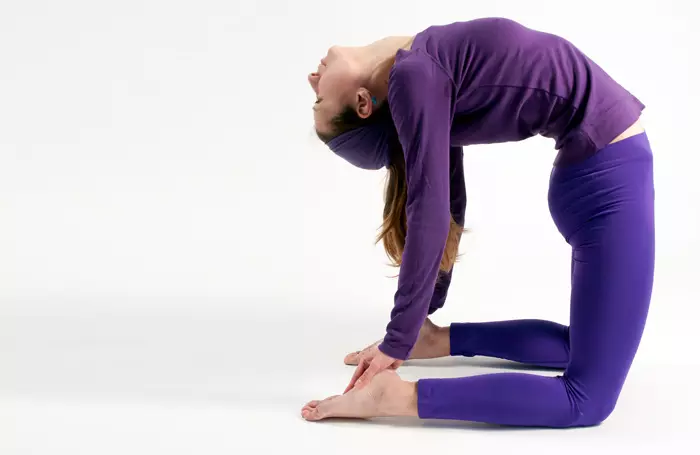
- To get into the camel pose, kneel on the floor and then keep both hands on your hips.
- The top part of your feet should be on the mat. Now, lengthen your spine.
- Slowly bend backwards while placing both hands on your heels.
- Stretch out your neck and bend the head backwards.
- Next, slide both hands to the soles.
- Stay in this posture for a few seconds.
 Quick Tip
Quick Tip2. Locust Pose:
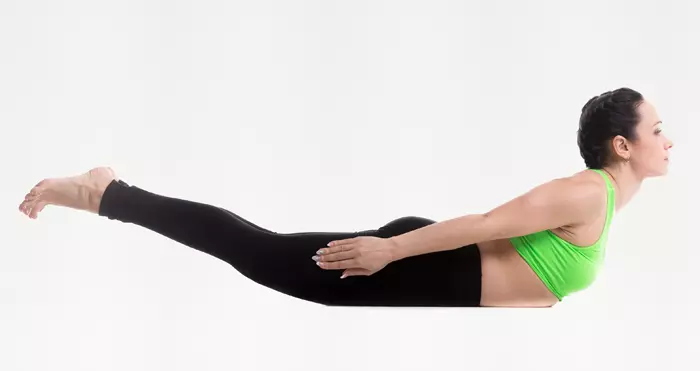
This pose helps stimulate blood circulation and enhances flexibility.
- At first, lie on the floor on your belly. Use soft padding if required.
- Your arms should be stretched along the body. Rest your forehead and face on the floor.
- As you breathe in, lift your chest, head, legs and arms off the ground.
- Ensure your legs are straight and arms remain flat on the sides.
- Next, spread your toes and fingers. Focus on inhaling.
- Stay in this pose for a few seconds.
 Quick Tip
Quick Tip3. Cobra Pose:
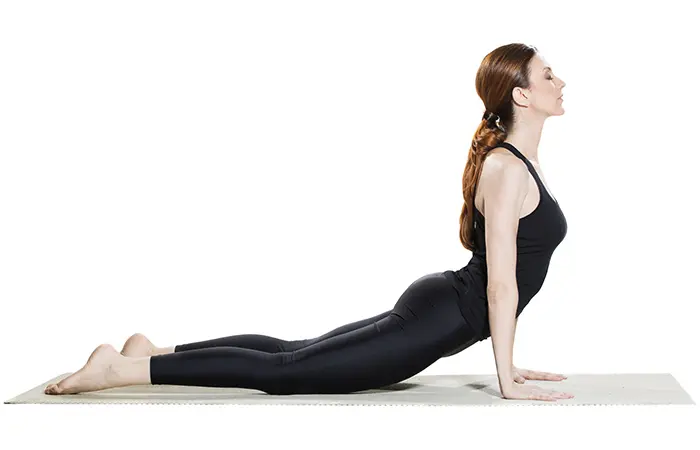
This back bend exercise strengthens your shoulders, arms and stretches muscles in the front section of the torso.
- Lie on the floor with both palms flat and kept beneath your shoulders.
- The feet tops need to be flat on the floor.
- Then engage your abs by drawing the belly button inwards and tilting your pelvis section.
- Now, press your palms and spread the fingers.
- Pull the shoulders back engaging the shoulder blades too.
- Push your body’s upper torso off the surface and keep your arms straightened.
- Your feet, hips and legs need to be planted firmly on the floor.
- Tilt your chin upwards and lift the chest.
- Remain in this pose for a few seconds.
No matter which yoga pose you are trying, take care to prevent movements that may aggravate pain. Stay away from twisting postures that may cause more strain on the spine and deep forward bends like the Child’s Pose. Choose stretches that are moderate enough to reduce strain and maintain the spine’s alignment.
 Quick Tip
Quick TipHow To Use The Yoga Poses For Pain Relief
The backward bending yoga poses help in strengthening your posterior ligaments as well as muscles that keep the damaged disc in its position. Regular practice of such yoga poses aid in making the spine stable and fit. Initially, lift off only half way and then as the spine allows, move into the full posture after a few weeks of practice.
To get relief from acute pain caused by the disc, asanas like makarasana and matsyakridasana can be tried. You can try them on a bed. They can relieve the pressure on damaged nerve roots. As the pain reduces, you can switch to the backward bending yoga poses, say the experts. When the pain is less, you can start doing Bhujangasana or Cobra pose. After some time, you can also try yoga poses like Ardha shalabhasana, Poorna shalabhasana and Dhanurasana. After practising the poses, you need to rest in shavasana. Ideally, you should practice these poses in the morning.
Yoga’s healing benefits can be significantly increased by including breath control and awareness in your practice. Techniques like diaphragmatic breathing and meditation can reduce stress, support pain relief, and promote overall wellness. You can promote a holistic approach to pain management and recovery by including these techniques in your daily routine.
After you are diagnosed with a herniated disc, you can begin with easy yoga poses like those mentioned above. Contrary to the above, some spinal conditions like the facet atrophy demands forward extensions and deeper backbends need to be avoided. Similarly, you should refrain from trying cross-legged sitting postures as they can lead to pressure on the nerve root.
Precautions:
You should stick to the recommended yoga poses and safer exercises during the recovery period. A trained and veteran physical therapist can aid you in mastering the proper exercise technique. You can also resort to DIY, yoga lessons and video tutorials for this purpose. While the safer yoga poses are not likely to cause any problem, if you feel the pain is being aggravated by a pose, stop doing it.
Infographic: Yoga Poses For Herniated Disc
A herniated disc can restrict the body’s range of motion and produce excruciating lower back discomfort. Yoga can be a helpful addition to the treatment of a herniated disc. It can lessen back discomfort and boost general health. Check out the infographic below for a few yoga poses you can try for a herniated disc. Scroll down to know more!

Illustration: StyleCraze Design Team
Herniated disc causes severe pain in the lower back and can hamper the free movement of the body. You can certainly take to yoga poses to relieve herniated disc pain instead of going for a surgical process. If performed under expert supervision, the poses like seated forward bend, locust pose, cobra pose, and camel pose can help keep damaged disks in position and make the spine fit. Additionally, incorporating yoga poses for relaxation can further help alleviate stress on the spine, providing overall pain relief and muscle relaxation. There are various other therapies that can help manage herniated disc pain such as relaxation techniques, mindfulness, meditation, and pranayama. Along with these asanas, these practices can also enhance blood circulation, strengthen shoulders, stretch muscles in the front torso, etc. Do these asanas in the morning on an empty stomach for effective results.
Frequently Asked Questions
Are there any yoga poses that should be avoided when dealing with a herniated disc?
Yes. While poses that involve arching the back are great for a herniated disc, ones that round the back can worsen the condition. Avoid poses, such as the child’s pose, sage’s pose, and forward bends.
How quickly can someone expect to see improvement in their herniated disc symptoms with regular yoga practice?
It depends on the extent of injury. Some people can see improvement within a few days, while it might take weeks for others. However, yoga practice can show immediate alleviation of pain that can make healing a comparatively less straining process.
Can yoga be used in conjunction with other medical treatments for a herniated disc?
It is best to talk to a physician before you begin a yoga program for a herniated disc so that you better understand your condition. While it is an advised practice, going into it without the knowledge of safe yoga practice can be risky.
Relieve back pain with this 10-minute yoga routine, specifically designed to strengthen your spine and provide relief from herniated discs. Get ready to feel better! Watch this video now!
Personal Experience: Source
StyleCraze's articles are interwoven with authentic personal narratives that provide depth and resonance to our content. Below are the sources of the personal accounts referenced in this article.
i. Lessons from mommy’s back sprain and slipped dischttps://mmlittlee.blogspot.com/2021/06/lessons-from-mommys-back-sprain-and.html
Read full bio of Anirudh Gupta
Read full bio of Shirin Mehdi
Read full bio of Ravi Teja Tadimalla
Read full bio of Himanshi Mahajan





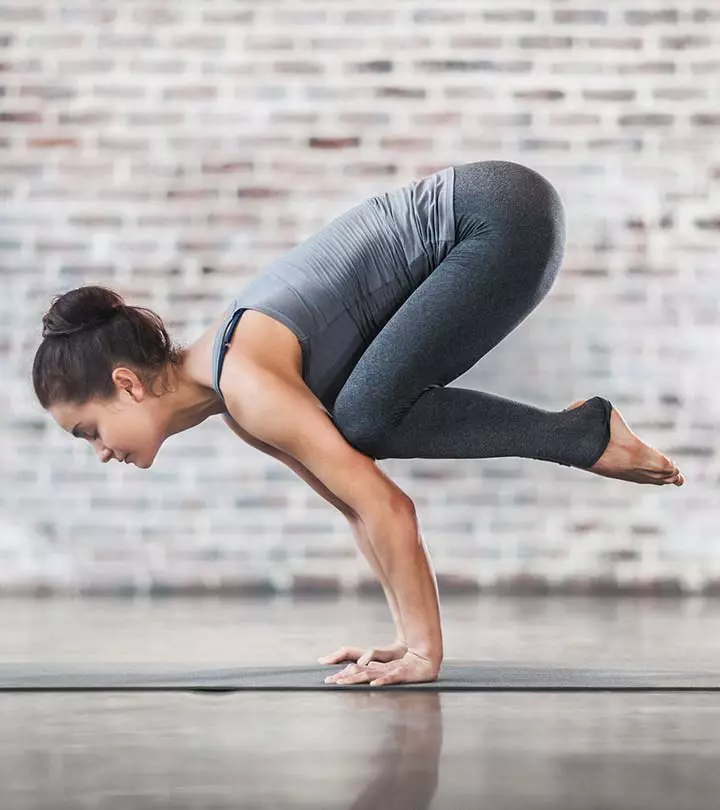

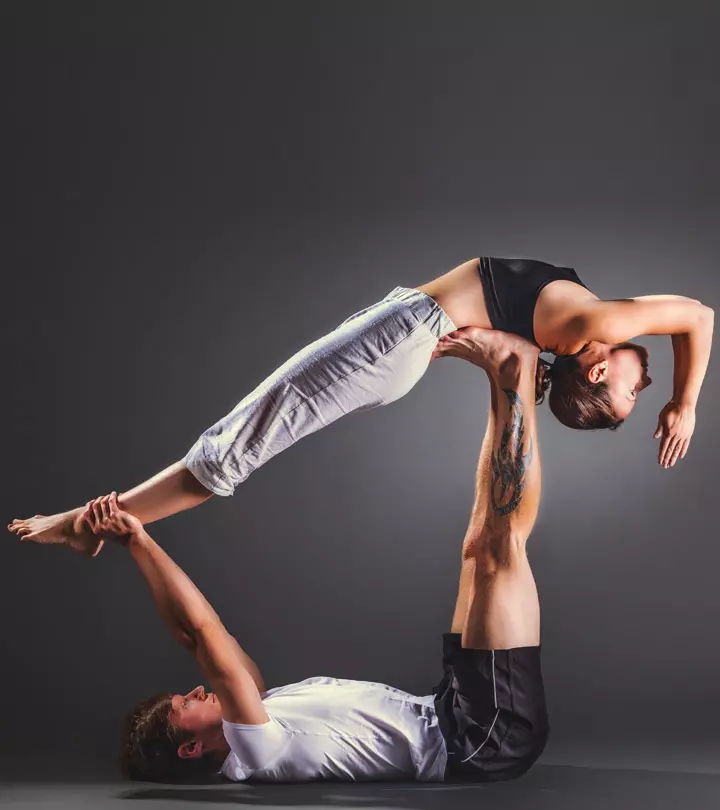
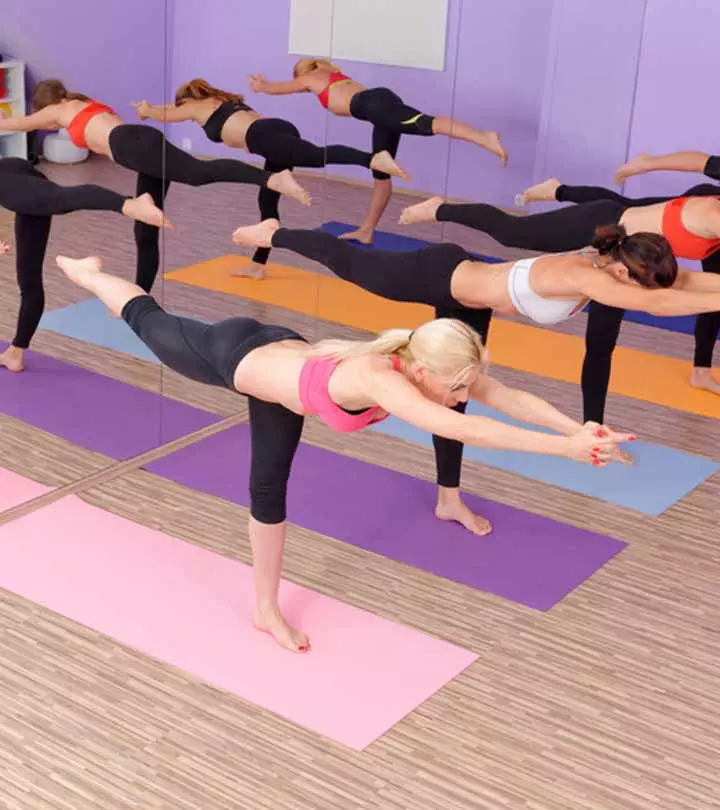
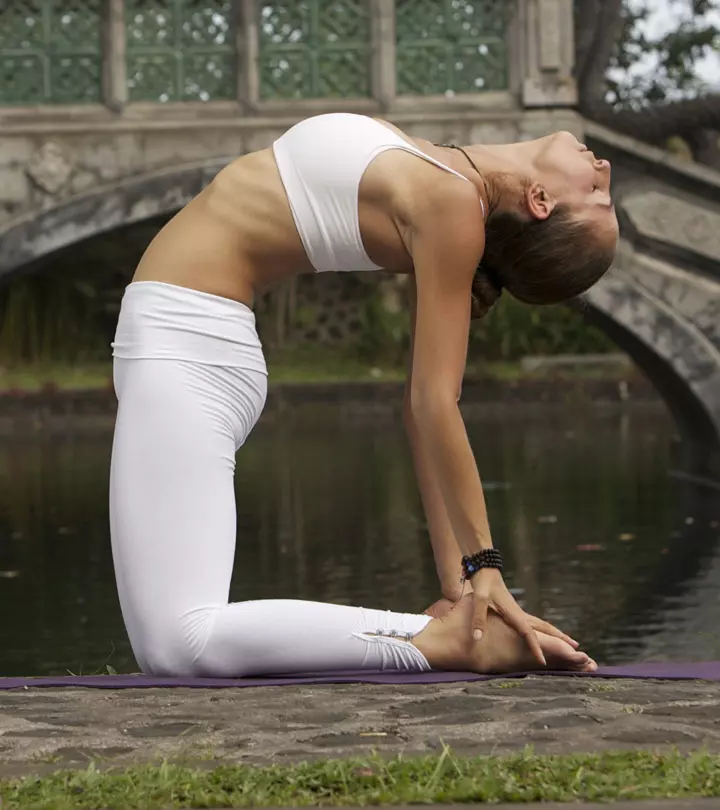
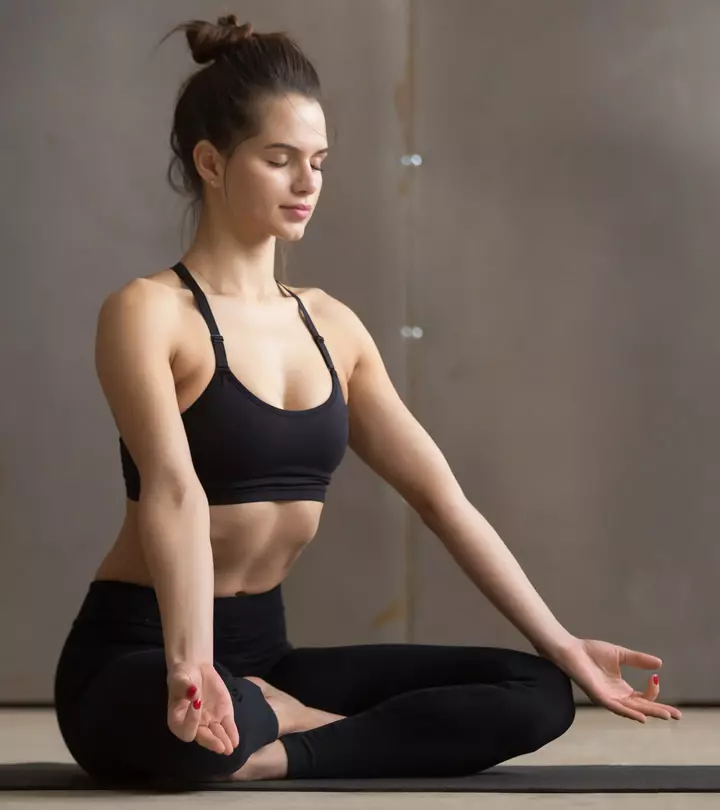
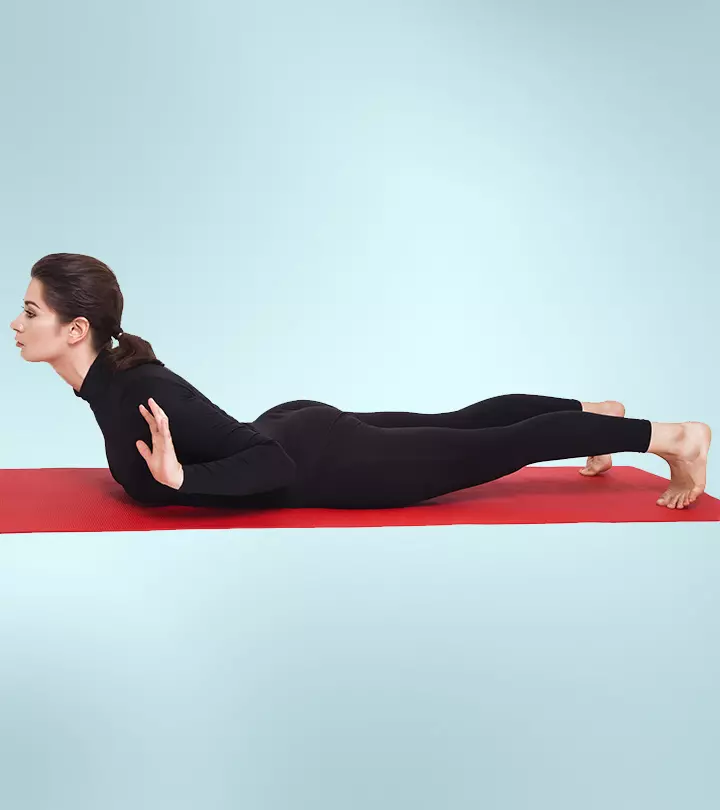
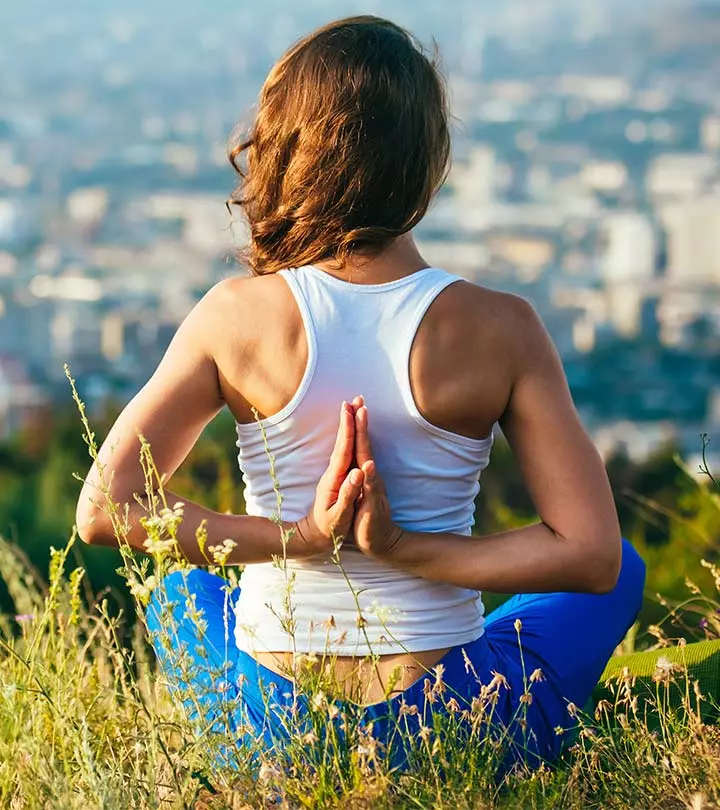
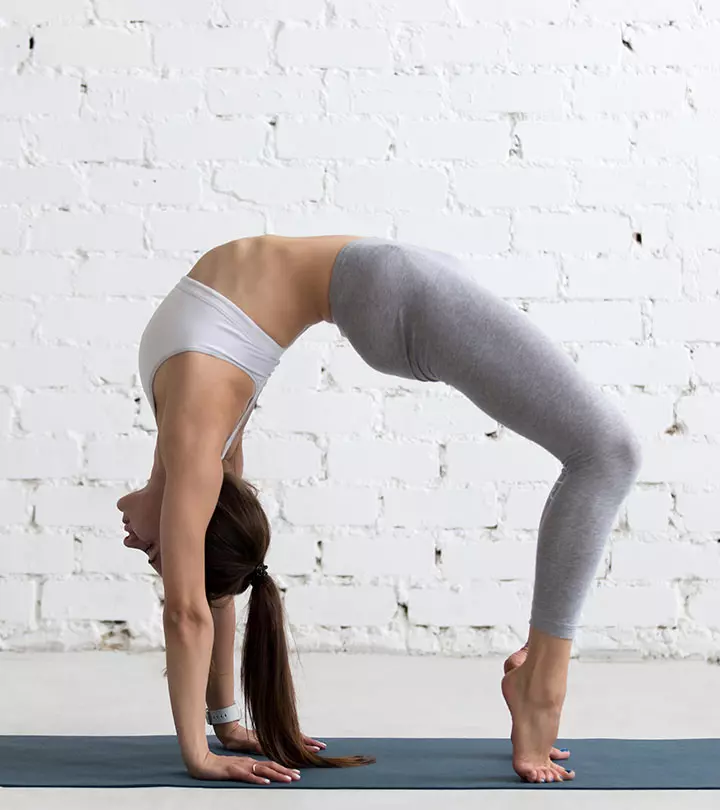

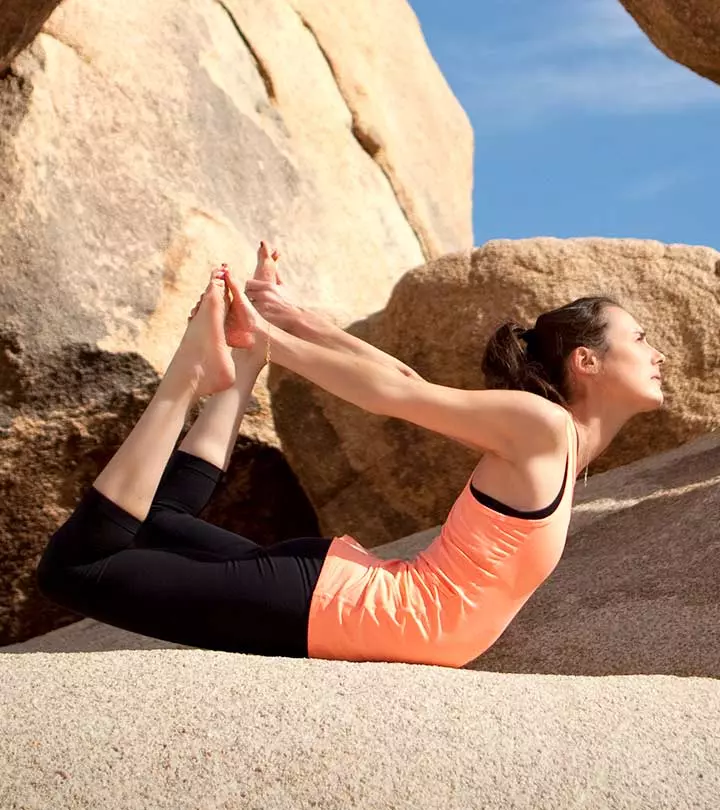
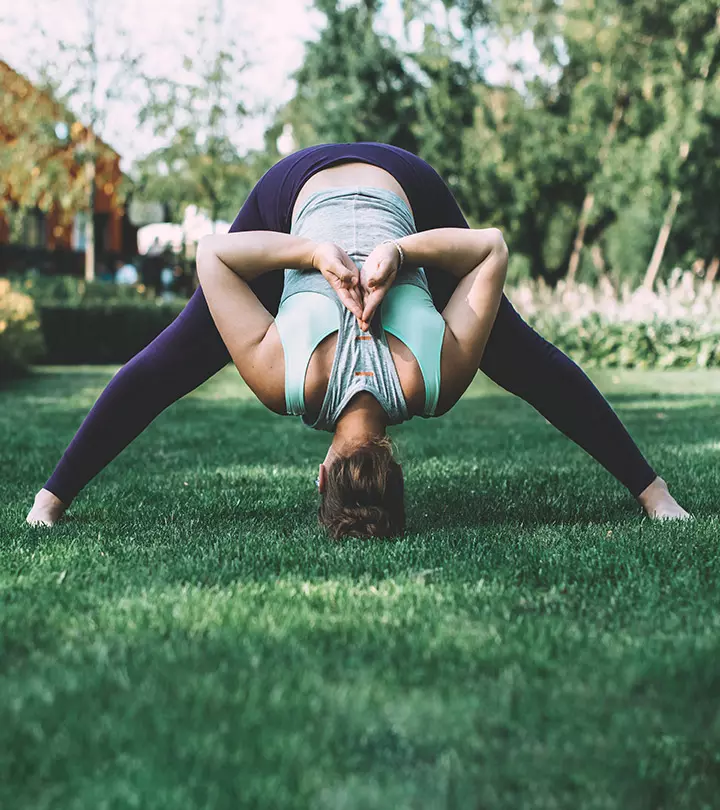
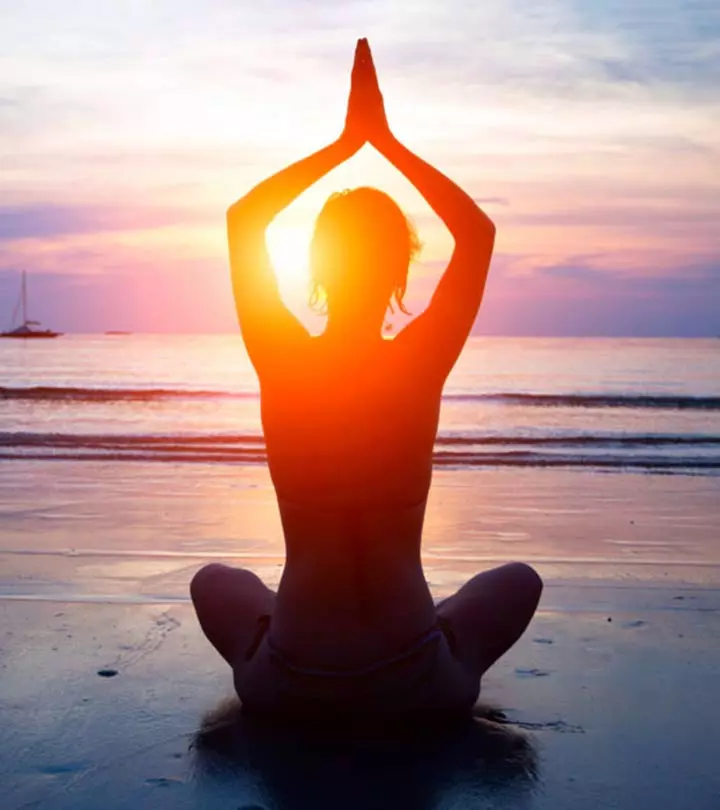
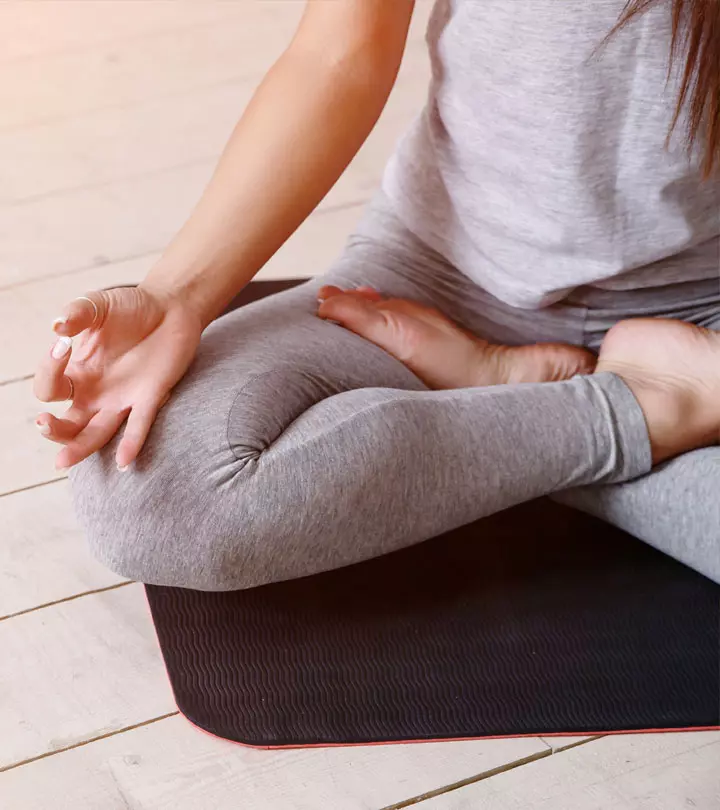
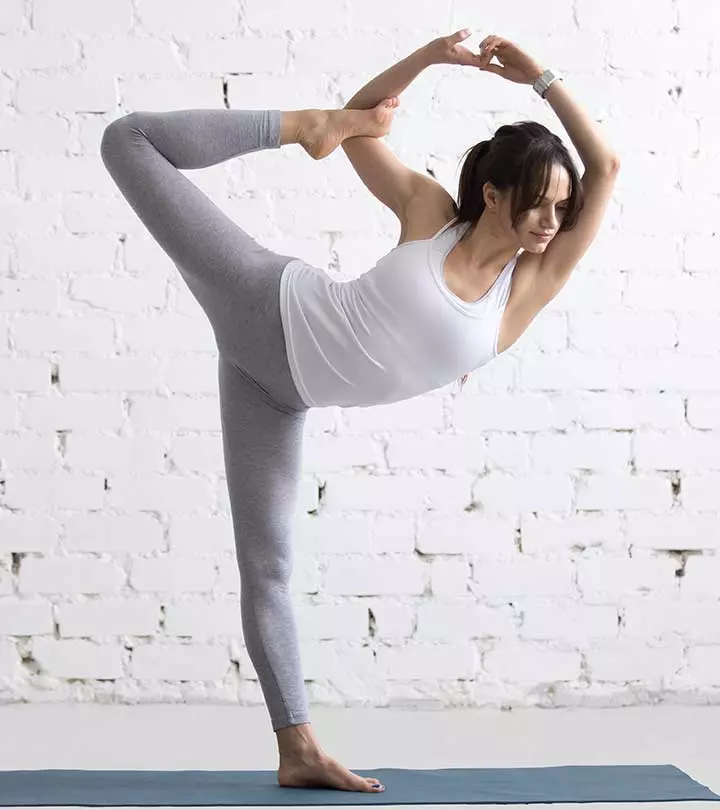

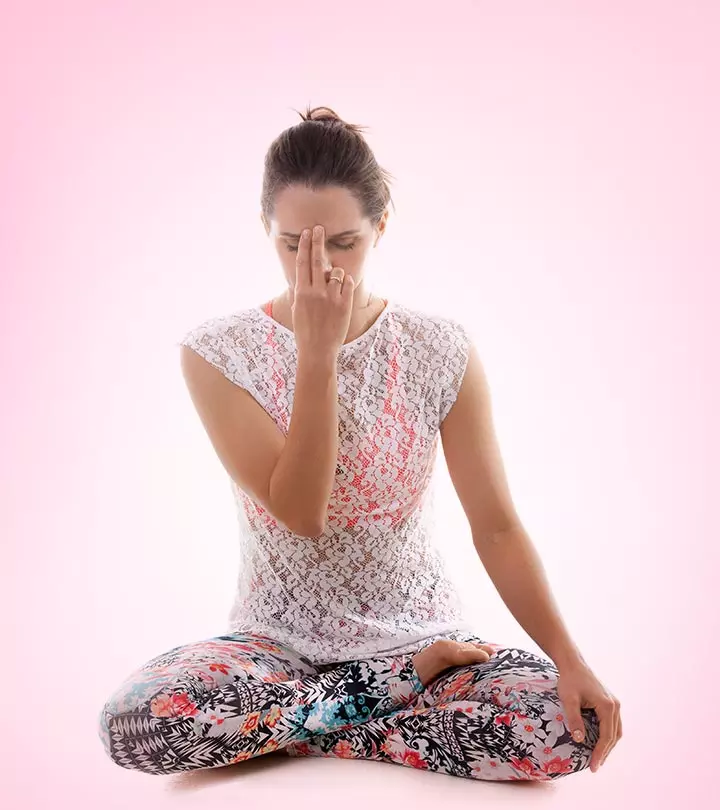
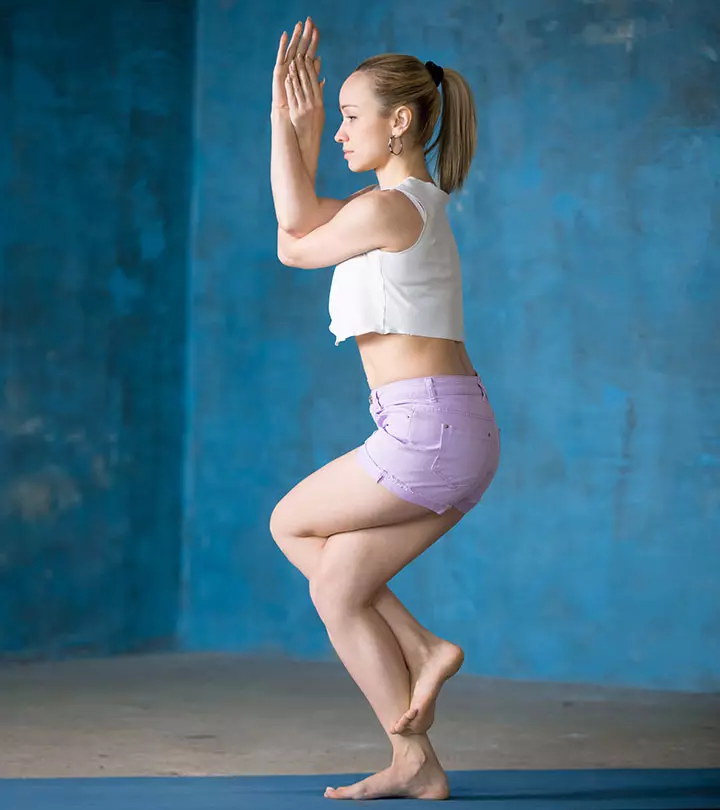
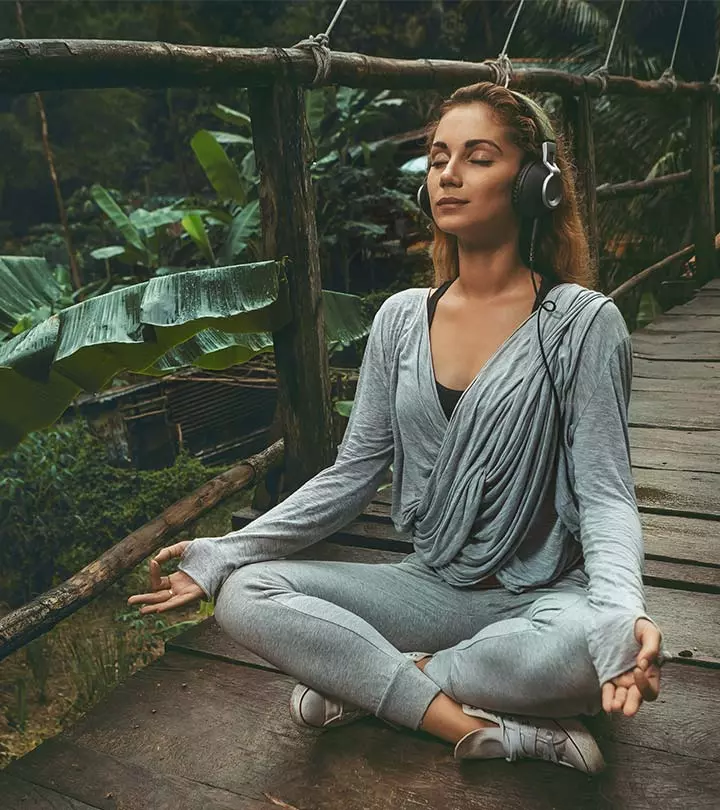
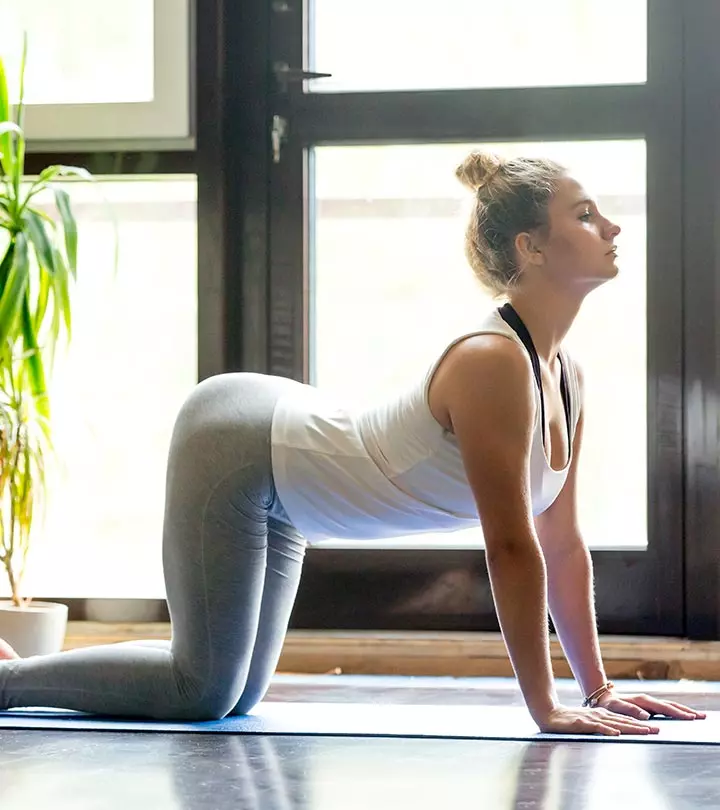
Community Experiences
Join the conversation and become a part of our empowering community! Share your stories, experiences, and insights to connect with other beauty, lifestyle, and health enthusiasts.